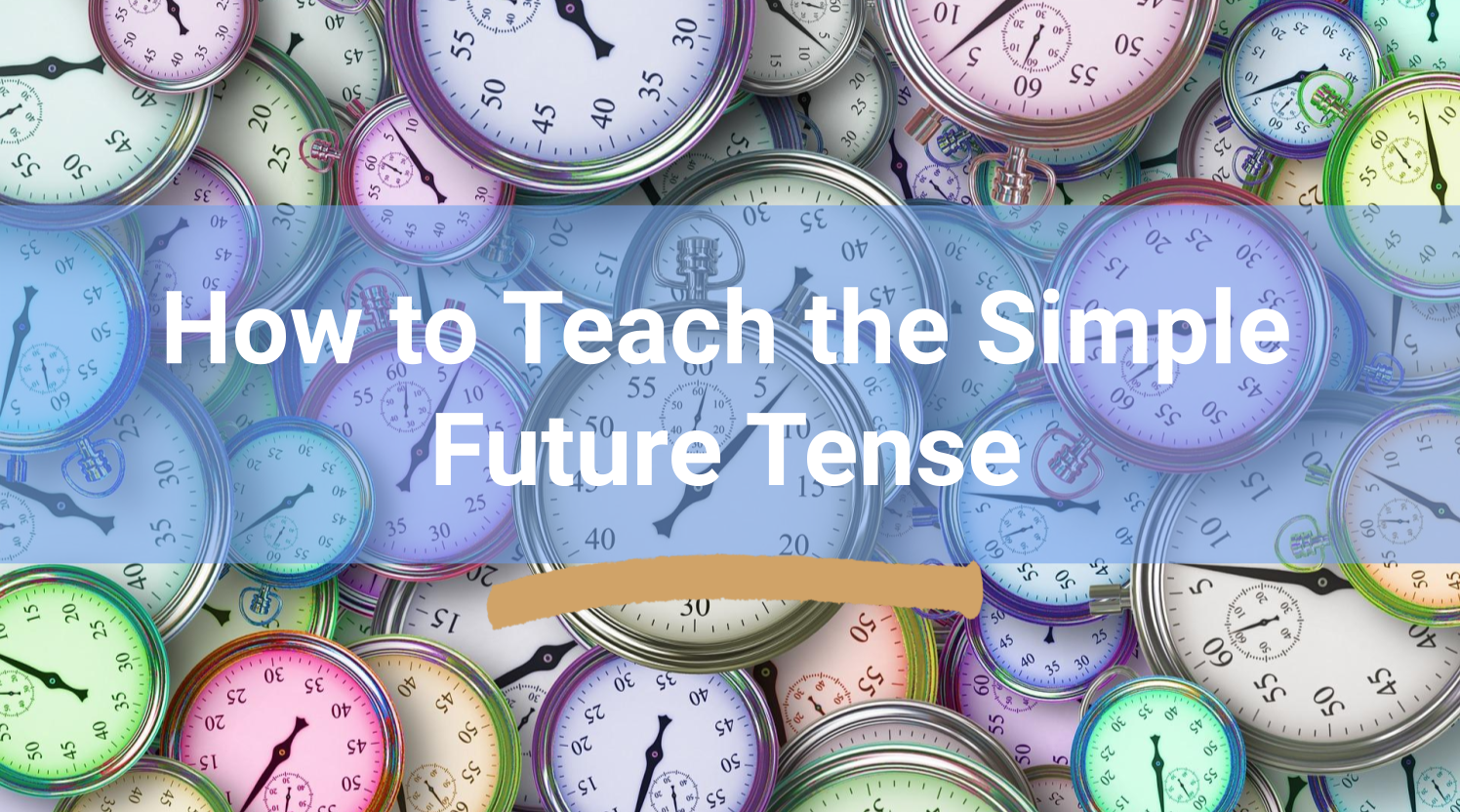How to Teach the Simple Future Tense


You don’t need a fortune teller to tell you your future. It’s right there in black and white in your appointment book! The Future Continuous tense is used when talking about fixed appointments and/or events that we’ve scheduled in the future, and also events that will be in progress at a specific time in the future. This may not be hard for ESL students to grasp, but some may ask: why not use the present continuous with future meaning? It’s a good idea to tell your students that the future continuous also sounds more polite, and it’s recommended especially in business contexts.
Introduce the Future Continuous
To introduce this tense use illustrations or pictures where there are lots people carrying out different actions; the best places are those where there are fixed schedules, like an airport, train station, or movie theater.
For example, show the illustration of a busy train station and ask:
T: Is Mr. Thompson boarding his train right now?
S: No, he’s waiting at the platform.
T: That’s right! He will be boarding his train at 7pm/in 10 minutes.
Go on with more examples: He’ll be taking the train to New York City. He’ll be leaving from Track 2. He’ll be arriving at 9pm. Show students another illustration and have them supply examples with the future continuous. Finally, ask students to give you examples based on what they will be doing the next day at a particular time, either events they’ve scheduled or actions that will be in progress.
S1: I will be having dinner with my family at 8pm.
S2: I will be studying all day tomorrow.
S3: I will be visiting my grandmother for her birthday tomorrow evening.
Introduce the Future Continuous – Negative form
Use the information supplied by students about things they will be doing the next day, and make negative statements, alternating between affirmative and negative.
T: Juan will be having dinner with his family at 8pm. He won’t be playing football.
Ask students to provide more sentences in the negative form by using their own examples or the illustrations used in class.
Introduce the Future Continuous – Interrogative form
Ask students questions about what they will be doing some time in the near future:
T: What will you be doing for the Christmas holidays?
S: I will be visiting my family in Mexico.
T: Ask a classmate!
S: Sarah, what will you be doing for the Christmas holidays?
Ask students to ask more questions. Encourage them to use what time, when, where, who, etc… Make sure they notice that questions in future continuous sound more polite than questions in simple future.
Introduce the Future Continuous – Short answers
Have students ask you questions about future events and reply with affirmative and negative short answers:
S: Will you be going somewhere for the holidays?
T: Yes, I will/No, I won't.
Students now take turns asking each other questions and replying with short answers.
Provide extended practice and contrast with other future tenses
If you wish to give your students more opportunities for practice, BusyTeacher.org offers several worksheets in our Future Continuous Section that should do wonderfully. What will your students be doing in 45 years? In the Teenagers of Tomorrow worksheet, your students will explore just that. Now’s also a great time to review and contrast all of the future tenses learned so far, and there are also fabulous worksheets for this, like Whose Life Is It? and Tomorrow's World.
Another great activity you can do with your class is a time capsule, although it doesn’t necessarily have to be as fancy as a capsule to be buried outside. Simply ask students to write down all of the things they imagine they will be doing in ten years time. Some will be finishing their studies; others will be changing diapers and raising children. Some may even be enjoying their retirement. Once they’ve written down their predictions, they put them into an envelope and seal it with this specific note across the front: DO NOT OPEN UNTIL 2020! They should keep these envelopes safely hidden at the bottom of a drawer or inside a book. Imagine their faces when they open them 10 years from now!